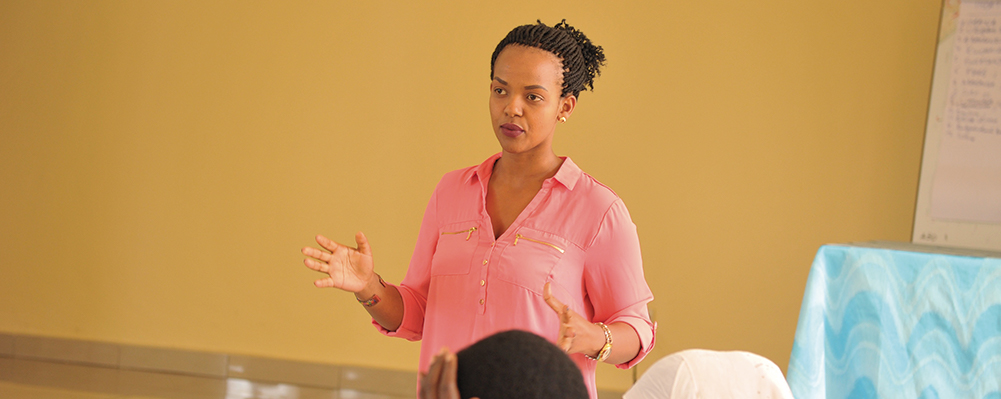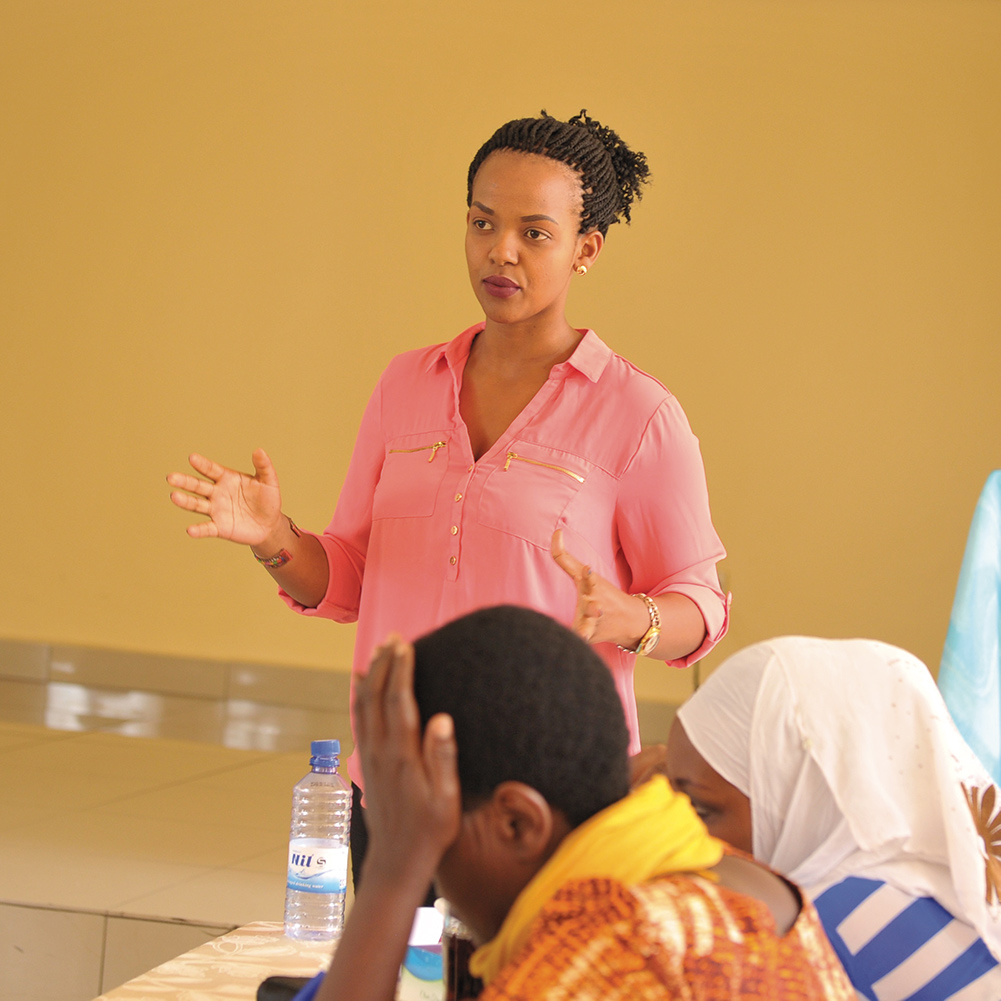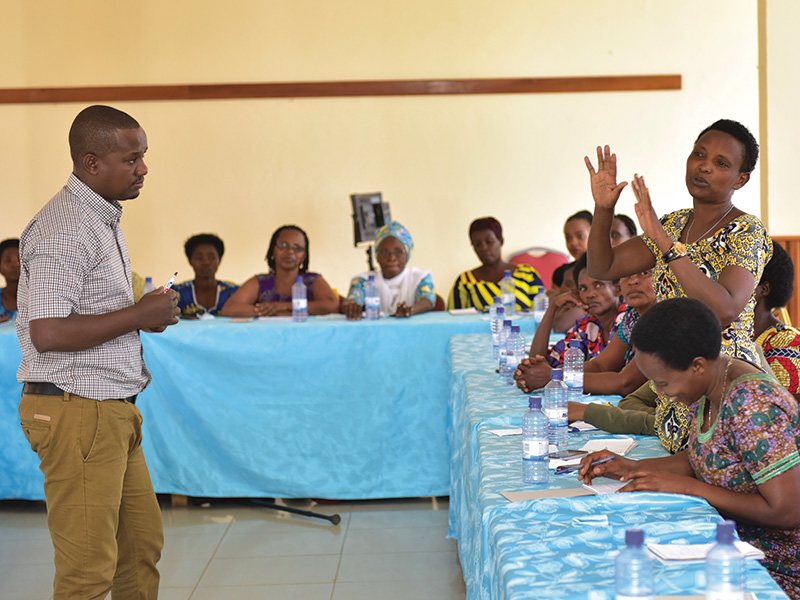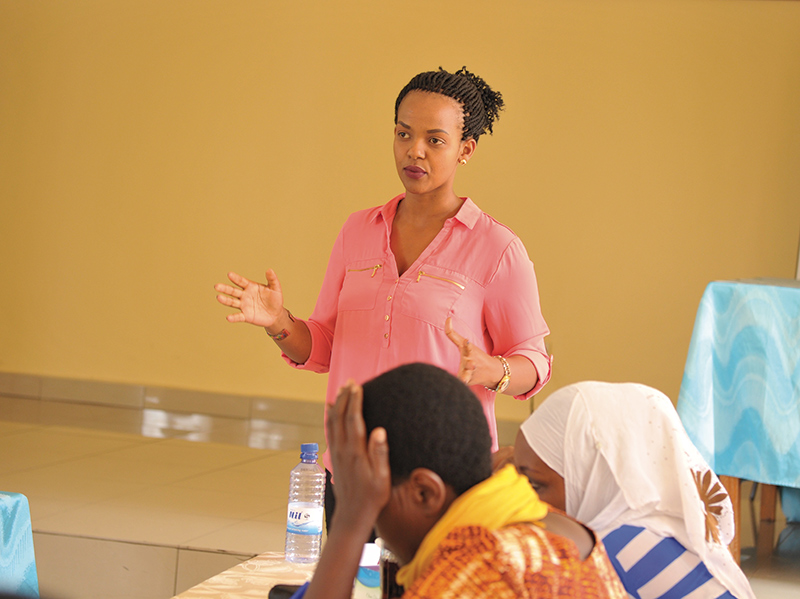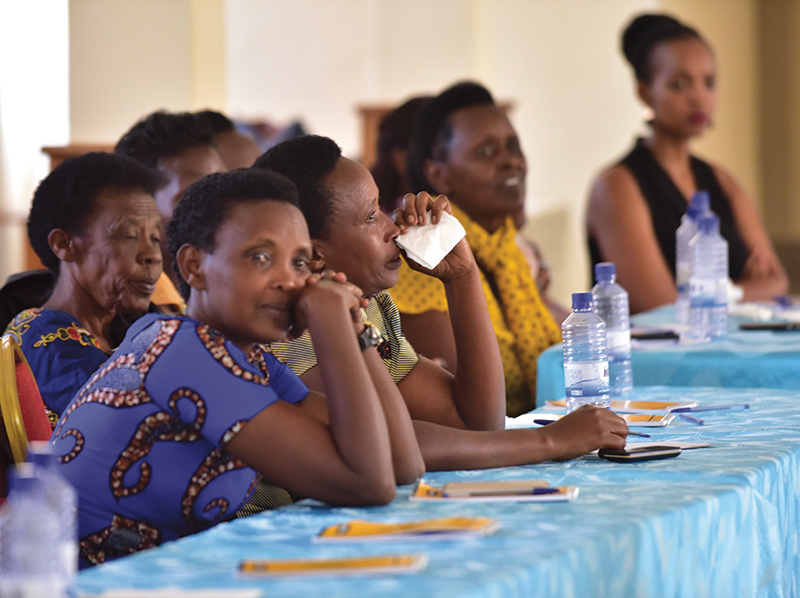Umuhoza knew she didn’t only want to contribute money because, in her opinion, that isn’t the most sustainable kind of service. So, she came up with the idea of creating a multi-day retreat for other survivors, filled with group activities, music, self-care, healing, and resilience trainings. At the retreat, Umuhoza even teaches attendees about starting businesses and making steady incomes.
In August 2018, Umuhoza facilitated the second annual retreat for the genocide survivors, building off the success of her initial internship with the Survivors Foundation, which she pursued with funding from Juniata’s Baker Institute for Peace and Conflict Studies.
“Healing is personal, but it can sometimes be collective, too,” Umuhoza says. “So, the retreat is for people to come together and learn from each other. Bringing them together helps them know that they are not alone.”
To plan the retreat, Umuhoza recruits psychologists, speakers, and other professionals to guide women through the healing process. And, she plans and participates in the activities with the women—consulting participants about retreat activities before planning the event.
“I go through the healing process by seeing these women, who are smiling and are full of love and empathy, even though they have gone through the most horrible experiences.”Liliane Pari Umuhoza ’19, Kigali, Rwanda
Though leading the retreat and completing participants’ follow-ups throughout the year from a different country can be tedious, Umuhoza knows that the work is worth it in the end because she sees the value in women healing each other.
“I am a survivor as well,” Umuhoza says. “I go through the healing process by seeing these women, who are smiling and are full of love and empathy, even though they have gone through the most horrible experiences.”
The second retreat resulted in some joint successes for Umuhoza and other participants.
“We had a woman who is HIV positive because of rape, and she refused to take her medicine, which means that she was taking away her own life,” Umuhoza says. “Taking medicine for these women is not just taking medicine—it is a reminder every day about what they went through. After this retreat, she started taking her medicine. We saved a life.”
In addition, the retreat allows women, some of whom have kept quiet about their traumas and experiences for almost 25 years, to finally open up to others, which Umuhoza says “is a huge relief and a huge step toward recovery.”
The success of the retreats has brought up a challenge, however. Umuhoza has yet to find an organization to fund the program for the survivors, so she works throughout the year, while continuing as a full-time student, to attempt to secure funding for the retreat to make it an annual event.
“We have had around 70 women go through the program thus far,” Umuhoza says. “But, there are so many women who need this support, and there’s no way I’m going to stop doing this any time soon.”
